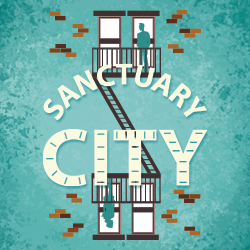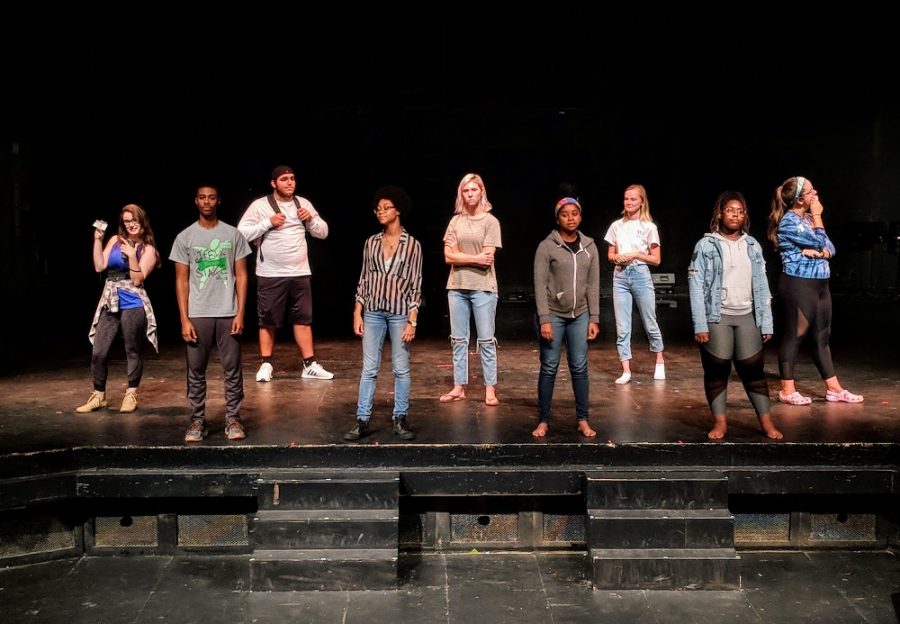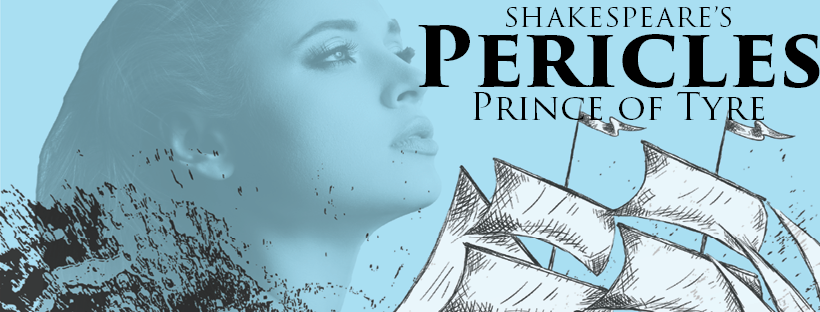Amid performances in places like Belgium, Rwanda and Switzerland, Rwandan playwright Diogène Ntarindwa has found time to stop at Marquette for four weeks.
He arrived on campus Nov.14 and will leave Dec. 11.
Ntarindwa will participate in various events across campus during the remainder of his stay, including a performance of his one-man play on Sunday.
Born in Burundi, Ntarindwa was a 17-year-old soldier with the Rwandan Patriotic Front during the country’s 1994 genocide, which left about 800,000 dead. He came to Marquette to share his experiences from this time and his perspectives on the issue of reconciliation after conflict.
Ntarindwa said his play, “Carte d’Identité,” examines the role events within a country play in the formation of an individual.
“Tell me which events you went through and I will tell you who you are” is the message of the play, Ntarindwa said.
It is also a way for him to convey the experiences he had during the genocide, he said, something he feels is necessary to ensure what happened in Rwanda is not forgotten.
“I have a great sense of responsibility about the future generations,” Ntarindwa said.
Still, the play focuses less on emphasizing a message and more on simply sharing experiences. It’s performed entirely in French but can still be appreciated by non-French speakers, he said.
“I think because the play is so physical and we have made some summaries of each section of the play, even if you don’t understand the language you can take something away,” he said.
Ntarindwa said he plays more than 15 different characters in the performance.
Sarah Davies Cordova, associate professor of French at Marquette, first saw Ntarindwa perform in a different production in Chicago last January.
While in Paris this summer, Cordova said she had the opportunity to see Ntarindwa perform the piece he is bringing to Marquette.
When she spoke with him after that performance, Ntarindwa expressed an interest in bringing his play to the United States, Cordova said.
After e-mailing him to be sure he was serious, Cordova began to gather support for his visit from departments across campus.
One of the organizations sponsoring his visit is the Marquette Chapter of Step Up!, which was formed in October.
Step Up! is a national organization that offers support to survivors of the Rwandan genocide, said Elizabeth Fincher, president of the Marquette chapter.
The group supports services such as counseling for women suffering from post-traumatic stress disorder and job training, said Fincher, a senior in the College of Education.
She sees Ntarindwa’s visit as a way to change how people today look at Rwanda and other conflicts, Fincher said, with a focus on the healing process instead of the violence.
“I hope that students, staff and anyone who goes and sees him are able to see that there are really great things happening around the world,” she said. “It’s so easy to get wrapped up in the negative and horrible things going on. It’s easy to get discouraged.”
Since arriving, Ntarindwa has visited various classes, including law school courses exploring the idea of reconciliation after devastating conflicts, Cordova said.
Lisa Laplante, a visiting assistant professor at the law school, said she met with Ntarindwa to talk about his perspectives on efforts in Rwanda to move past the genocide.
Laplante specializes in transitional justice, which is a way of responding to widespread human rights abuses to ensure a society remembers the past to prevent it from happening again, she said.
“The fact that a Rwandan artist is talking about these issues here in Milwaukee is an amazing opportunity,” Laplante said. “These are issues going on all over the world.”
Erica Breunlin contributed to this article.




